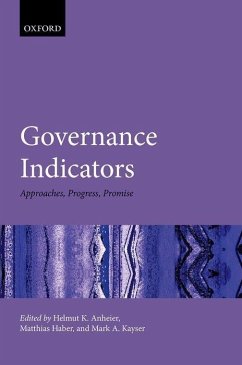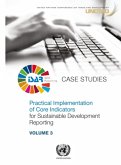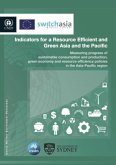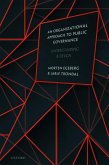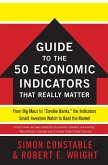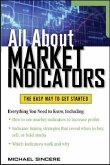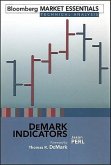Governance Indicators
Approaches, Progress, Promise
Herausgeber: Anheier, Helmut K; Kayser, Mark A; Haber, Matthias
Governance Indicators
Approaches, Progress, Promise
Herausgeber: Anheier, Helmut K; Kayser, Mark A; Haber, Matthias
- Gebundenes Buch
- Merkliste
- Auf die Merkliste
- Bewerten Bewerten
- Teilen
- Produkt teilen
- Produkterinnerung
- Produkterinnerung
This volume explore the scope of existing governance indices and indicator frameworks, elaborates on current challenges in measuring and analysing governance, and offer recommendations on how to overcome them.
Andere Kunden interessierten sich auch für
![Practical Implementation of Core Indicators for Sustainable Development Reporting Practical Implementation of Core Indicators for Sustainable Development Reporting]() United Nations Conference on Trade and DevelopmentPractical Implementation of Core Indicators for Sustainable Development Reporting30,99 €
United Nations Conference on Trade and DevelopmentPractical Implementation of Core Indicators for Sustainable Development Reporting30,99 €![Indicators for a Resource Efficient and Green Asia and the Pacific Indicators for a Resource Efficient and Green Asia and the Pacific]() United Nations Environment ProgrammeIndicators for a Resource Efficient and Green Asia and the Pacific88,99 €
United Nations Environment ProgrammeIndicators for a Resource Efficient and Green Asia and the Pacific88,99 €![Organizational Approach to Public Governance Organizational Approach to Public Governance]() Morten Egeberg (Professor of Public Policy and Administration in thOrganizational Approach to Public Governance125,99 €
Morten Egeberg (Professor of Public Policy and Administration in thOrganizational Approach to Public Governance125,99 €![The Wsj Guide to the 50 Economic Indicators That Really Matter The Wsj Guide to the 50 Economic Indicators That Really Matter]() Simon ConstableThe Wsj Guide to the 50 Economic Indicators That Really Matter19,99 €
Simon ConstableThe Wsj Guide to the 50 Economic Indicators That Really Matter19,99 €![All About Market Indicators All About Market Indicators]() Michael SincereAll About Market Indicators29,99 €
Michael SincereAll About Market Indicators29,99 €![DeMark Indicators DeMark Indicators]() Jason PerlDeMark Indicators31,99 €
Jason PerlDeMark Indicators31,99 €![KPI Checklists KPI Checklists]() Bernie SmithKPI Checklists31,99 €
Bernie SmithKPI Checklists31,99 €-
-
-
This volume explore the scope of existing governance indices and indicator frameworks, elaborates on current challenges in measuring and analysing governance, and offer recommendations on how to overcome them.
Hinweis: Dieser Artikel kann nur an eine deutsche Lieferadresse ausgeliefert werden.
Hinweis: Dieser Artikel kann nur an eine deutsche Lieferadresse ausgeliefert werden.
Produktdetails
- Produktdetails
- Hertie Governance Report
- Verlag: Oxford University Press
- Seitenzahl: 326
- Erscheinungstermin: 1. Januar 2019
- Englisch
- Abmessung: 239mm x 158mm x 27mm
- Gewicht: 664g
- ISBN-13: 9780198817062
- ISBN-10: 0198817061
- Artikelnr.: 52713451
- Herstellerkennzeichnung
- Libri GmbH
- Europaallee 1
- 36244 Bad Hersfeld
- 06621 890
- Hertie Governance Report
- Verlag: Oxford University Press
- Seitenzahl: 326
- Erscheinungstermin: 1. Januar 2019
- Englisch
- Abmessung: 239mm x 158mm x 27mm
- Gewicht: 664g
- ISBN-13: 9780198817062
- ISBN-10: 0198817061
- Artikelnr.: 52713451
- Herstellerkennzeichnung
- Libri GmbH
- Europaallee 1
- 36244 Bad Hersfeld
- 06621 890
Helmut K. Anheier is Professor of Sociology and past President of the Hertie School of Governance. Matthias Haber was (at the time of writing) Research Scientist for the Governance Report at the Hertie School of Governance and leader of the governance indicators team. Mark A. Kayser is Professor of Applied Methods and Comparative Politics at the Hertie School of Governance. The Hertie School of Governance is an international teaching and research centre of excellence in Berlin, Germany that prepares students for leadership positions in government, business, and civil society. An internationally-recruited faculty, interdisciplinary in outlook, research, and teaching, offers analytically-challenging and practice-oriented courses on governance, policy analysis, management, and leadership and helps students grow intellectually in a professional, research-intensive environment, characterised by public debate and engagement. The School was founded in 2003 as a project of the Hertie Foundation, which remains its major partner.
* 1: 25 Years of Governance Indicators: Where Are We and Where Are We
Going?
* Part I: What Are Indicators For and What Difference Do They Make?
* 2: Matthias Haber and Olga Kononykhina: A Comparative Classification
and Assessment of Governance Indices
* 3: Frances Fukuyama and Francesca Recanatini: Beyond Measurement:
What is Needed For Effective Governance and Anti-Corruption Reform
* 4: Alina Mungiu-Pippidi and Roberto Martinez Barranco Kukutschka: Can
a Civilization Know Its Own Institutional Decline? A Tale of
Indicators
* Part II: Measuring and Communicating Governance Solutions
* 5: James Hollyer: Measuring Governance: Objective and
Perceptions-Based Governance Indicators
* 6: Piero Stanig: Considerations on the Method of Constructing
Governance Indices
* 7: Mihály Fazekas, Luciana Cingolani, and Bence Tóth: Innovations in
Objectively Measuring Corruption in Public Procurement
* 8: David Osimo: The Opportunities and Limitations of Crowdsourcing
Policy Indicators
* 9: Christopher Gandrud: The Reproducibility of Governance Indicators:
Assessing Current Practices and Looking Forward
* 10: Hazel Feigenblatt: Governance Indicators and the Broken Feedback
Loop: Leveraging Communications For Impact
* Part III: The Way Forward
* 11: Mark Kayser: Measuring Governance: An Assessment of the Research
Challenges
* 12: Rolf Alter: Addressing the Policy Challenge: Improving Supply Of
and Meeting Demands for Sound Evidence
Going?
* Part I: What Are Indicators For and What Difference Do They Make?
* 2: Matthias Haber and Olga Kononykhina: A Comparative Classification
and Assessment of Governance Indices
* 3: Frances Fukuyama and Francesca Recanatini: Beyond Measurement:
What is Needed For Effective Governance and Anti-Corruption Reform
* 4: Alina Mungiu-Pippidi and Roberto Martinez Barranco Kukutschka: Can
a Civilization Know Its Own Institutional Decline? A Tale of
Indicators
* Part II: Measuring and Communicating Governance Solutions
* 5: James Hollyer: Measuring Governance: Objective and
Perceptions-Based Governance Indicators
* 6: Piero Stanig: Considerations on the Method of Constructing
Governance Indices
* 7: Mihály Fazekas, Luciana Cingolani, and Bence Tóth: Innovations in
Objectively Measuring Corruption in Public Procurement
* 8: David Osimo: The Opportunities and Limitations of Crowdsourcing
Policy Indicators
* 9: Christopher Gandrud: The Reproducibility of Governance Indicators:
Assessing Current Practices and Looking Forward
* 10: Hazel Feigenblatt: Governance Indicators and the Broken Feedback
Loop: Leveraging Communications For Impact
* Part III: The Way Forward
* 11: Mark Kayser: Measuring Governance: An Assessment of the Research
Challenges
* 12: Rolf Alter: Addressing the Policy Challenge: Improving Supply Of
and Meeting Demands for Sound Evidence
* 1: 25 Years of Governance Indicators: Where Are We and Where Are We
Going?
* Part I: What Are Indicators For and What Difference Do They Make?
* 2: Matthias Haber and Olga Kononykhina: A Comparative Classification
and Assessment of Governance Indices
* 3: Frances Fukuyama and Francesca Recanatini: Beyond Measurement:
What is Needed For Effective Governance and Anti-Corruption Reform
* 4: Alina Mungiu-Pippidi and Roberto Martinez Barranco Kukutschka: Can
a Civilization Know Its Own Institutional Decline? A Tale of
Indicators
* Part II: Measuring and Communicating Governance Solutions
* 5: James Hollyer: Measuring Governance: Objective and
Perceptions-Based Governance Indicators
* 6: Piero Stanig: Considerations on the Method of Constructing
Governance Indices
* 7: Mihály Fazekas, Luciana Cingolani, and Bence Tóth: Innovations in
Objectively Measuring Corruption in Public Procurement
* 8: David Osimo: The Opportunities and Limitations of Crowdsourcing
Policy Indicators
* 9: Christopher Gandrud: The Reproducibility of Governance Indicators:
Assessing Current Practices and Looking Forward
* 10: Hazel Feigenblatt: Governance Indicators and the Broken Feedback
Loop: Leveraging Communications For Impact
* Part III: The Way Forward
* 11: Mark Kayser: Measuring Governance: An Assessment of the Research
Challenges
* 12: Rolf Alter: Addressing the Policy Challenge: Improving Supply Of
and Meeting Demands for Sound Evidence
Going?
* Part I: What Are Indicators For and What Difference Do They Make?
* 2: Matthias Haber and Olga Kononykhina: A Comparative Classification
and Assessment of Governance Indices
* 3: Frances Fukuyama and Francesca Recanatini: Beyond Measurement:
What is Needed For Effective Governance and Anti-Corruption Reform
* 4: Alina Mungiu-Pippidi and Roberto Martinez Barranco Kukutschka: Can
a Civilization Know Its Own Institutional Decline? A Tale of
Indicators
* Part II: Measuring and Communicating Governance Solutions
* 5: James Hollyer: Measuring Governance: Objective and
Perceptions-Based Governance Indicators
* 6: Piero Stanig: Considerations on the Method of Constructing
Governance Indices
* 7: Mihály Fazekas, Luciana Cingolani, and Bence Tóth: Innovations in
Objectively Measuring Corruption in Public Procurement
* 8: David Osimo: The Opportunities and Limitations of Crowdsourcing
Policy Indicators
* 9: Christopher Gandrud: The Reproducibility of Governance Indicators:
Assessing Current Practices and Looking Forward
* 10: Hazel Feigenblatt: Governance Indicators and the Broken Feedback
Loop: Leveraging Communications For Impact
* Part III: The Way Forward
* 11: Mark Kayser: Measuring Governance: An Assessment of the Research
Challenges
* 12: Rolf Alter: Addressing the Policy Challenge: Improving Supply Of
and Meeting Demands for Sound Evidence

